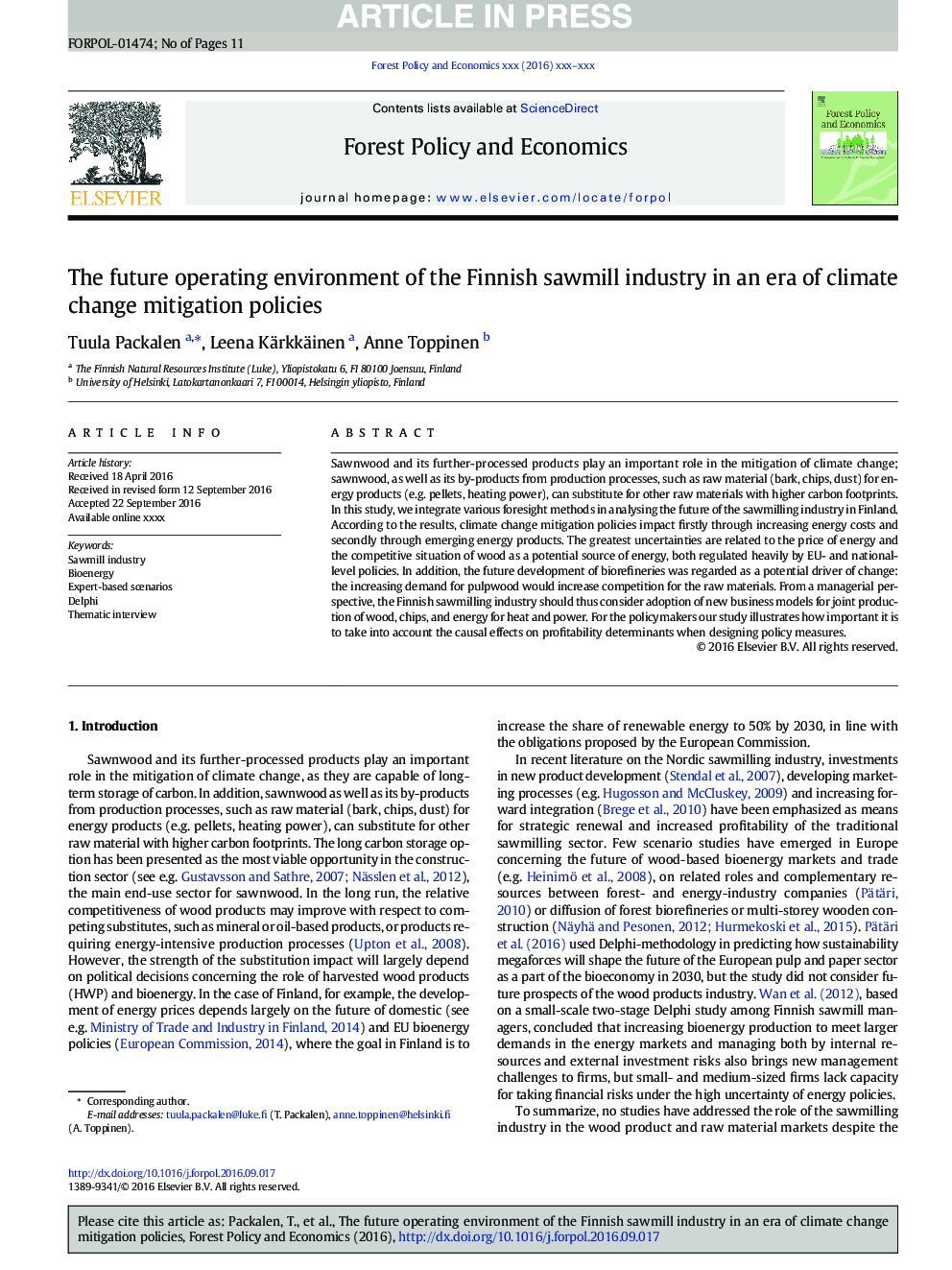| Article ID | Journal | Published Year | Pages | File Type |
|---|---|---|---|---|
| 4759753 | Forest Policy and Economics | 2017 | 11 Pages |
Abstract
Sawnwood and its further-processed products play an important role in the mitigation of climate change; sawnwood, as well as its by-products from production processes, such as raw material (bark, chips, dust) for energy products (e.g. pellets, heating power), can substitute for other raw materials with higher carbon footprints. In this study, we integrate various foresight methods in analysing the future of the sawmilling industry in Finland. According to the results, climate change mitigation policies impact firstly through increasing energy costs and secondly through emerging energy products. The greatest uncertainties are related to the price of energy and the competitive situation of wood as a potential source of energy, both regulated heavily by EU- and national-level policies. In addition, the future development of biorefineries was regarded as a potential driver of change: the increasing demand for pulpwood would increase competition for the raw materials. From a managerial perspective, the Finnish sawmilling industry should thus consider adoption of new business models for joint production of wood, chips, and energy for heat and power. For the policymakers our study illustrates how important it is to take into account the causal effects on profitability determinants when designing policy measures.
Related Topics
Life Sciences
Agricultural and Biological Sciences
Forestry
Authors
Tuula Packalen, Leena Kärkkäinen, Anne Toppinen,
